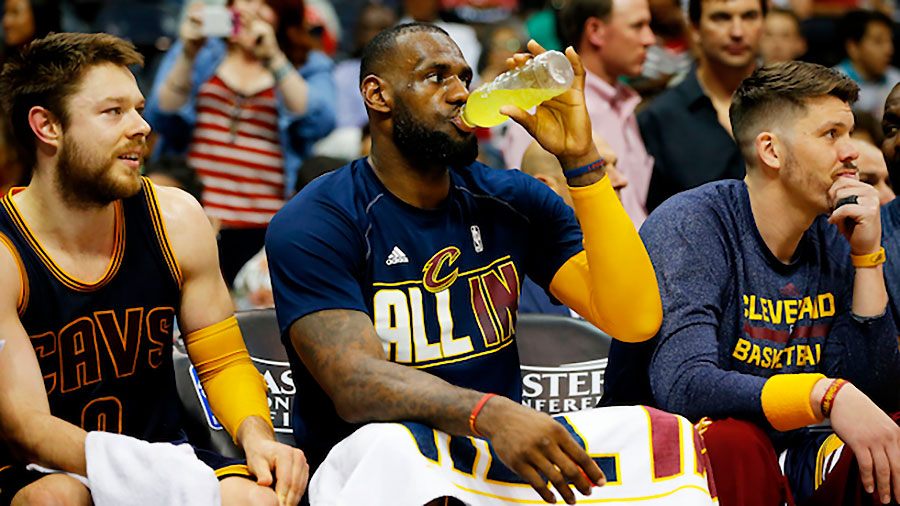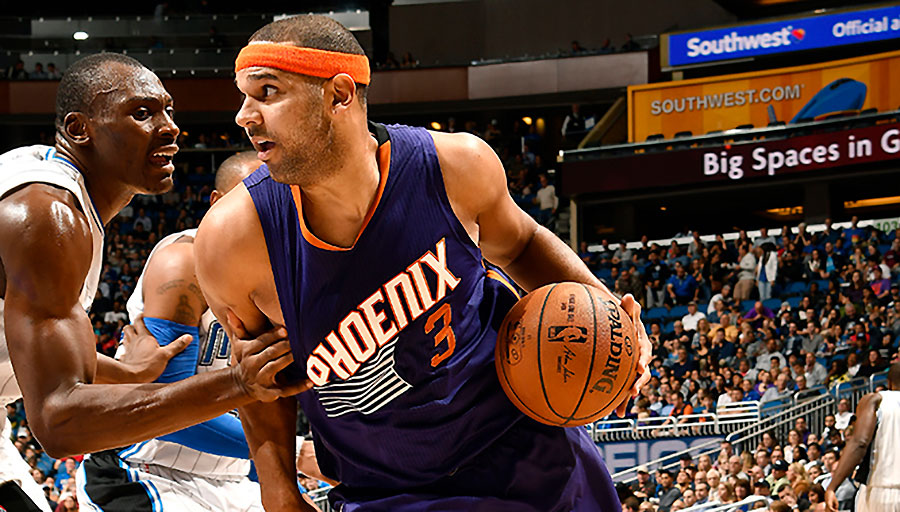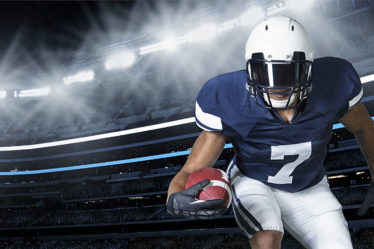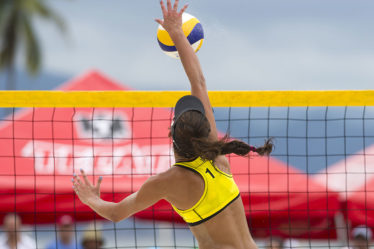
Basketball is a popular team sport played throughout the world. Although it is played professionally by most, many also engage in it at an amateur level. It is played by men and women as well as children from primary school level all the way through professional leagues. Basketball is an Olympic sport and has a well-organized league system in many countries around the world.
As researched by many experts, nutrition is a very important part of a Basketball athlete’s life. Basketball players, like other athletes, require good Basketball nutrition for optimum performance. The game is characterized by dribbling, jumping, as well as repeated short fast sprints with varying periods of recovery. It consists of frequent bouts of stop-and-go activities and changes of direction. Players need to utilize both aerobic and anaerobic energy systems which require both physical and mental agility.
Basketball can be demanding as players are usually required to train anywhere from one session a week to as much as one or two sessions per day. This is especially true when competition is ongoing. Basketball players are also required to train regularly offseason.
In a highly intense sport that requires a combination of speed, power, agility, and endurance, coupled with technical skill and mental stamina, players must be at their best to succeed. Even though the average possession or play segment may last just about 12 to 20 seconds, players usually cover up to five miles of running in one game. All of these point to the fact that players need to adopt a complete Basketball nutrition plan for optimal performance.
Hydration needs
The importance of hydration in the human body cannot be overemphasized, especially during physical activity and for basketball in particular. As a result of the fast-moving nature of the game, basketball requires high-intensity running, fast decision-making and skillful handling of the ball. Therefore, consuming fluids before, during and after training or games is extremely important in staying hydrated. Studies have revealed that dehydration can affect a player’s output negatively with respect to concentration, speed, agility, shooting accuracy and general coordination.
Players should start any exercise or competition session well hydrated. Drinking water and other healthy fluids should be an intrinsic part of a player’s lifestyle. This requires drinking regularly throughout the day, in preparation for a training session or a competition. A good starting point will be to drink with all your meals and snacks as well as in between.

It should be noted that the quantity of fluids in the body usually depends on the rate at which fluid is lost through sweating or bathroom trips. The setting of the training or match is also an important determinant of a player’s fluid needs. When playing in an air-conditioned court, players don’t usually sweat as much as they do when playing in a poorly ventilated court, or outdoors when the weather is hot.
As a practical tool, players can ask themselves a few questions that will reveal if they are properly hydrated. Questions such as:
Am I thirsty?
Has my urine color turned dark yellow?
Does my mouth feel dry?
Is my body weight noticeably less than it was yesterday?
Pre-game diet requirements and examples
Most athletes prefer to eat three to four hours before the beginning of a training session or game. When eating 3-4 hours before a game, it is recommended that a player consumes 0.45-1.81 grams of carbohydrates per pound of body weight. This means a 180 lb player should consume 81-327 grams of carbohydrates.
For a 150 lb player with a carbohydrate recommendation range of 68-272 grams, the following are examples of the required meal or snack:
- 12 fl oz apple juice
- A container (60z) of yogurt with fruit at the bottom, topped with 1/2 cup of granola
- A large banana
- 1 plain bagel with 1 Tbsp. of light margarine.
Total: 209g carbohydrates, 25g protein, 9g fat
Snack 2 hours before a game:
- 2 slices of toast with jelly (2 slices of white bread, 1 Tbsp. of fruit preserves)
- A cup of apple cranberry juice
Total: 78g carbohydrates, 4g protein, 2g fat
Meals taken before training or games should be low in protein, fat, or fiber. The timing of carbohydrate consumption should also allow for proper digestion before the game begins.
The following are also other solid options for a carefully balanced meal before the game:
MEAL OPTION 1
- Tuna (without oil) sandwich
- Milk or fruit yogurt
- Cornflakes with banana slices
- Orange juice
MEAL OPTION 2
- Chicken sandwich
- Vegetarian soup
- Apple juice
- Low-fat yogurt
MEAL OPTION 3
- Skinless turkey sandwich
- Low-fat frozen yogurt
- Cooked vegetables or green salad
- Grape juice
Diet requirements during games and examples
When playing or training indoors, players can experience great sweat loss as a result of high-intensity exercise. This is especially true with larger players. As solid foods cannot be taken during the game, the frequent breaks in the passage of play, such as substitutions, stoppages, quarter and half-time breaks, should be utilized to get some fluids in.
Although water is the preferred fluid for training and for hydration during the day, for players identified as having high energy requirements or heavy fluid losses, sports or electrolyte drinks may be useful during a game, as they replenish carbohydrates and electrolytes stock in the body. Light, easy to digest carbohydrate-rich snacks such as fresh fruit, flavored milk, trail mix or gel packs (GU Energy Original Sports Nutrition Energy Gel) are all good alternatives for refueling between games.
Post-game diet requirements and examples
After training and games exertions, it is important for players to consume carbohydrates to replenish muscle and liver glycogen (stored carbohydrates). Carbohydrates should also be consumed throughout the day during meals and snacks. To support recovery and readiness for the next practice session or game, the body stores a relatively small amount of carbohydrate. It’s therefore important for recovery meals and snacks to contain carbohydrate (fuel), some protein (for muscle repair and development) as well as plenty of fluids and electrolytes to replace sweat losses.
In situations where a player has less than 24 hours between the next training session or competition, emphasis should be placed on recovery nutrition. This is especially important during tournament games when multiple matches can take place in one day, with minimal time for recovery. In such cases, players should consume 0.45-0.54g/lb of carbohydrates every 4 hours. For a 220 lb player, this translates to 100-120g of carbohydrates every 4 hours.
Players should follow these three golden rules in recovery nutrition:
- Refuel muscle glycogen (carbohydrate stores)
- Repair muscle (for function & development)
- Rehydrate (replace fluids lost through sweat)
Here are some recovery food suggestions:
- Chicken, avocado and salad sandwich
- Burritos with beef, cheese, avocado, and salad
- Dairy-based fruit smoothie
- Yogurt + muesli with nuts and seeds
Basketball nutrition best practices
Nutritional advisers and team coaches have a prominent role in communicating this message to athletes in order to help players make the right decisions on nutrition. These decisions range from fueling and fluid strategies, that go a long way to help the player adapt to and prepare for training sessions of various intensity and competitions, to recovery meals required to stay refreshed, healthy and strong.
Players should be well informed on preparing not only mentally but physically with the right nutrition tools already presented above for pre-exercise, during, and post-exercise. Also, note that it is important to practice these habits and experiment with foods and fluids prior to implementing these practices during competitions. Taking the necessary steps to put these nutritional strategies into practice will help the payer maintain top performance levels.
Be organized
Players should carry hydration fluids with them at all times as well as snacks. It can be difficult to rely on the competition venue to provide appropriate food choices.
Plan ahead
Young players may need to move away from home to advance their sports career. Learning the basics of cooking and meal planning could go a long way in their professional athletics lives.
Practice what you learn
Both professional players and those who are still growing their game of Basketball should aim to meet their nutrition and protein needs from carefully planned meals and snacks. At a professional level, it is of utmost importance that players work closely with an accredited Sports Dietitian in determining their nutrition and hydration needs.
Example diets from Basketball celebrities
Phoenix Suns forward Jared Dudley’s nutrition plan is a good example to follow when it comes to consuming the right diet for optimum performance. Jared’s childhood nickname was “Teddy” and that was partly because he was so plump. He also had a serious McDonald’s addiction that only made things worse.

He now calls his former burger diet “nonsense, if you want a long career.” And here’s the daily eating strategy the 6’7″ forward follows to keep his weight at 225 pounds and stay on top of his game:
7 a.m. — Jared Wakes up
8 a.m. — Breakfast “Skipping the first meal makes it more likely you’ll eat junk later,” he says. His usual breakfast includes eggs, fruit or oatmeal. “The eggs just seem to keep me full,” he says.
8:45 to 10 a.m. — Workout either with the team or alone.
10 a.m. to noon — Basketball practice
12:30 p.m. — Lunch. It is usually advisable to eat after a workout, especially if you want to lose weight. Jared takes a chicken, tuna, or turkey sandwich; the carbs help him restore his energy, and the meat provides the protein he needs to rebuild muscle.
2 p.m.—Nap. Helps keep you fresh and rebuild muscles.
4 p.m.—Snack. He eats trail mix or a salad with salmon or baked chicken, between meals.
7 p.m.— Dinner Time. He almost always has chicken—and add lettuce, spinach, asparagus, or any other vegetable that has some color. “The fiber will help you feel like you’re eating more, without the guilt or worry that it’ll slow you down,” he says.
11 p.m.—Takes Dessert
Time for some chocolate chip cookies. They’re his favorite, so he’s made a rule: “I can eat one only if we have a road victory. It keeps the bad foods in check.”
11:30 p.m.—Carries own food while on the road
He plays and then travels to the next city, like all NBA players. So while on the road, he packs a meal for the trip. It’s the better alternative because he knows that a tray of airline surprise is probably unhealthy and hotel grub could be worse still.
The right nutrition may not be all you require to succeed as a basketball player, but for every player who wants to reach the top and fulfill their potential, nutrition must be taken seriously.



